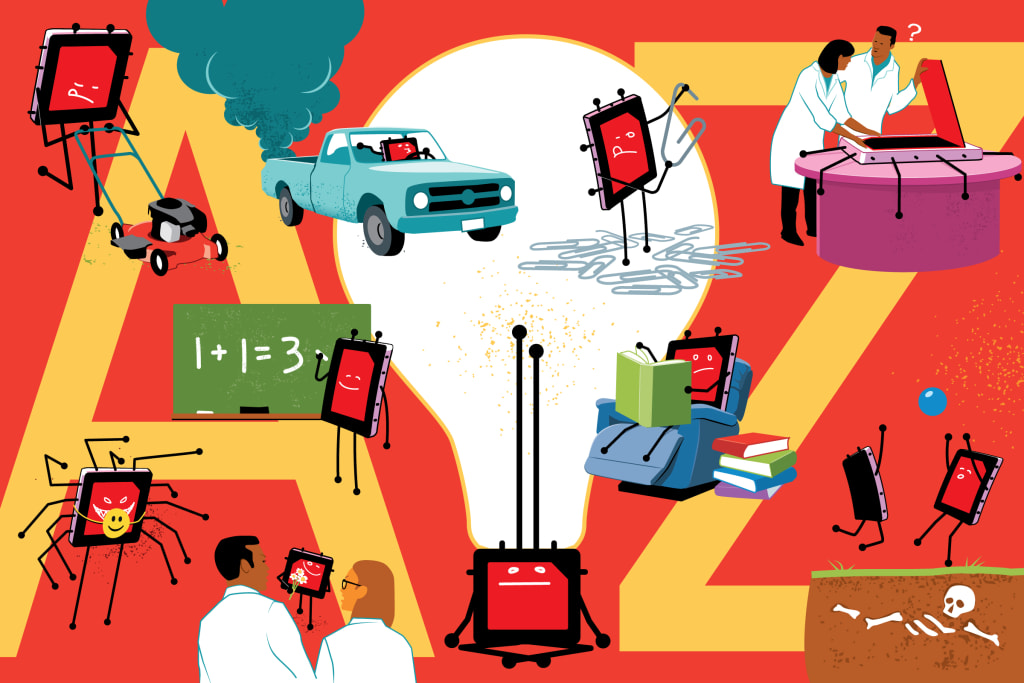
Artificial intelligence (AI) has long been a subject of fascination and concern, often portrayed in popular culture as a harbinger of dystopian futures. Images of killer robots, rogue AI systems, and machines overpowering humanity have dominated our collective imagination through movies like Terminator, Black Mirror, and Blade Runner. However, the reality of AI today is far from these grim portrayals. In fact, many leading experts in the field argue that AI is not here to replace humans but to enhance and supercharge our capabilities. This article explores the transformative potential of human-led AI, emphasizing the symbiotic relationship between humans and machines.
At its core, AI relies on human ingenuity and expertise. Behind every AI algorithm is a team of human experts who design, develop, and fine-tune these systems. Rather than diminishing the role of humans, AI amplifies our ability to tackle complex problems and understand vast datasets that were once beyond our comprehension.
The origins of AI lie in the profound desire to make a positive impact on the world. Scientists, engineers, and researchers inspired by the potential of AI have sought innovative ways to harness its power. This desire to harness AI for the greater good is exemplified by the founders of many AI companies, who view AI as a tool to drive meaningful change and progress.
AI's remarkable journey from a concept to a transformative force can be best understood by examining its relationship with data. Data is the lifeblood of AI, fueling its algorithms and enabling them to make intelligent decisions. However, the quality of data is paramount. Bad data or insufficient data can lead to inaccurate AI outcomes. This realization prompted the founding of companies like Scale, dedicated to creating high-quality datasets enriched with human insight.
The synergy between humans and AI becomes evident when we consider the data annotation process. Human experts play a pivotal role in ensuring data accuracy by providing context, nuance, and understanding to AI systems. They guide AI algorithms, teaching them to make informed decisions and replicate human judgment. This process is essential for aligning AI with human intentions and values, thus ensuring fair and ethical outcomes.
In a world filled with complexity and unpredictability, humans remain indispensable in the AI development cycle. An illustrative example comes from the realm of chatbots. These AI-driven conversational agents rely on human input to navigate the intricacies of human language and context. While AI can perform admirably in many tasks, it cannot evolve or adapt without continuous human input.
Contrary to the fear that AI seeks to replace human jobs, its primary function is to augment human capabilities. The field of healthcare provides a compelling illustration. With AI's assistance, healthcare professionals can streamline routine tasks, such as analyzing copious amounts of patient data for diagnostics. This not only expedites the diagnosis process but also allows doctors to focus on more complex aspects of patient care.
The impact of AI extends across diverse domains, from drug discovery and crisis management to economic analysis. In drug discovery, AI leverages complex datasets to guide researchers in developing innovative treatments and therapies. In crisis situations, such as conflicts and natural disasters, AI can analyze satellite imagery with superhuman speed and precision, aiding in damage assessment and resource allocation.
In summary, AI is not an adversary to be feared but a powerful tool that has the potential to revolutionize our world. It empowers humans to navigate the vast sea of data and infuse intelligence into automated systems, ultimately enhancing human productivity and problem-solving abilities. AI serves as a catalyst, enabling individuals to dedicate their time and energy to creative endeavors and critical decision-making.
In this human-led AI paradigm, humans and machines collaborate harmoniously, each contributing their unique strengths. AI's ability to automate repetitive tasks frees humans to explore fresh ideas and tackle complex challenges. This collaboration between human creativity and AI-driven efficiency promises a future where we can confront and solve the world's most pressing problems with newfound ingenuity and vigor.





Comments (1)
Great work! Fantastic! Gazoogabloga! Very interesting!